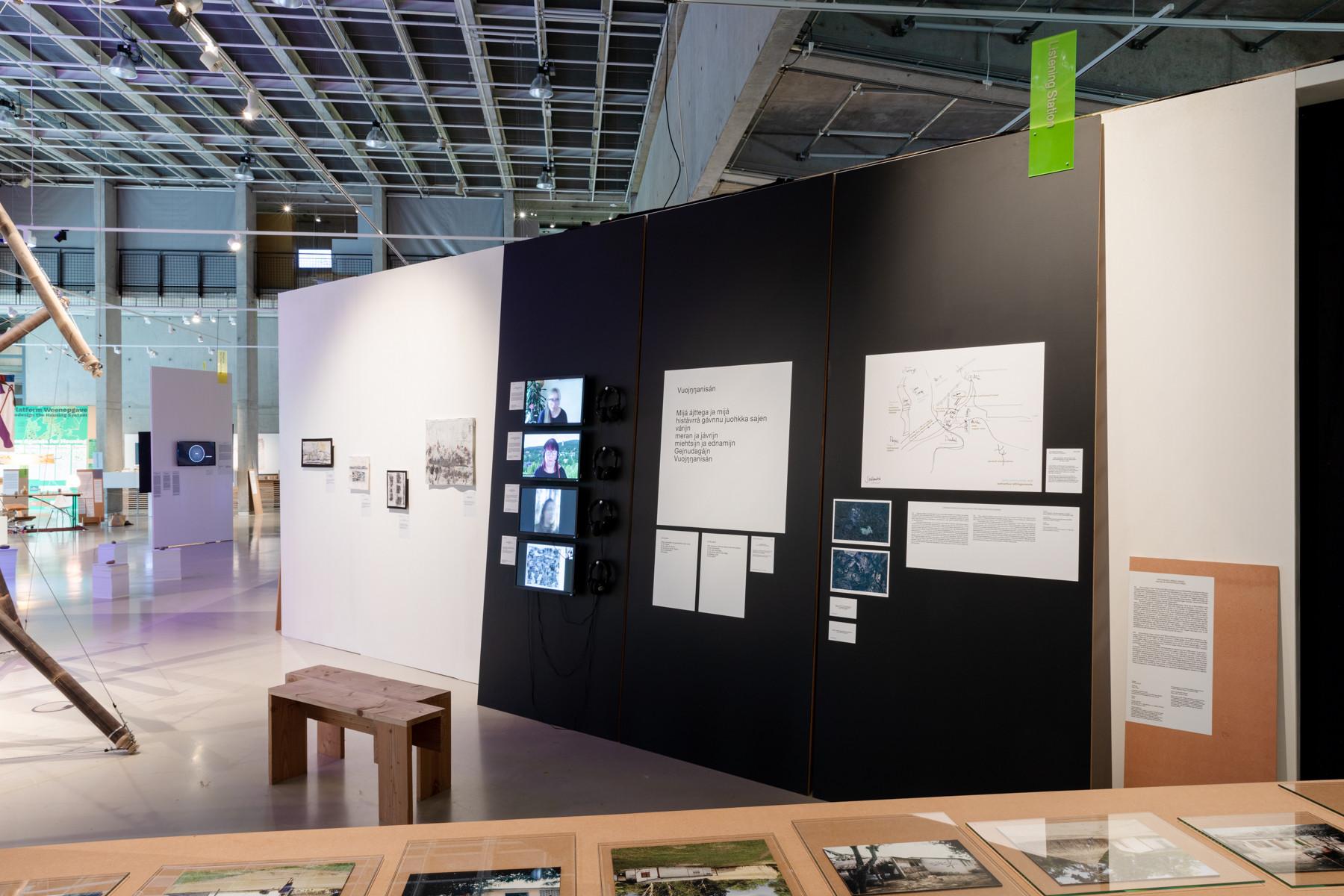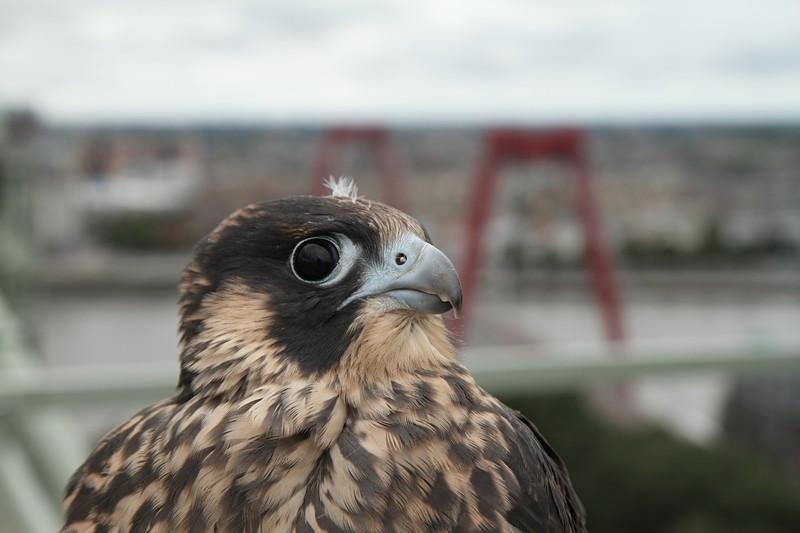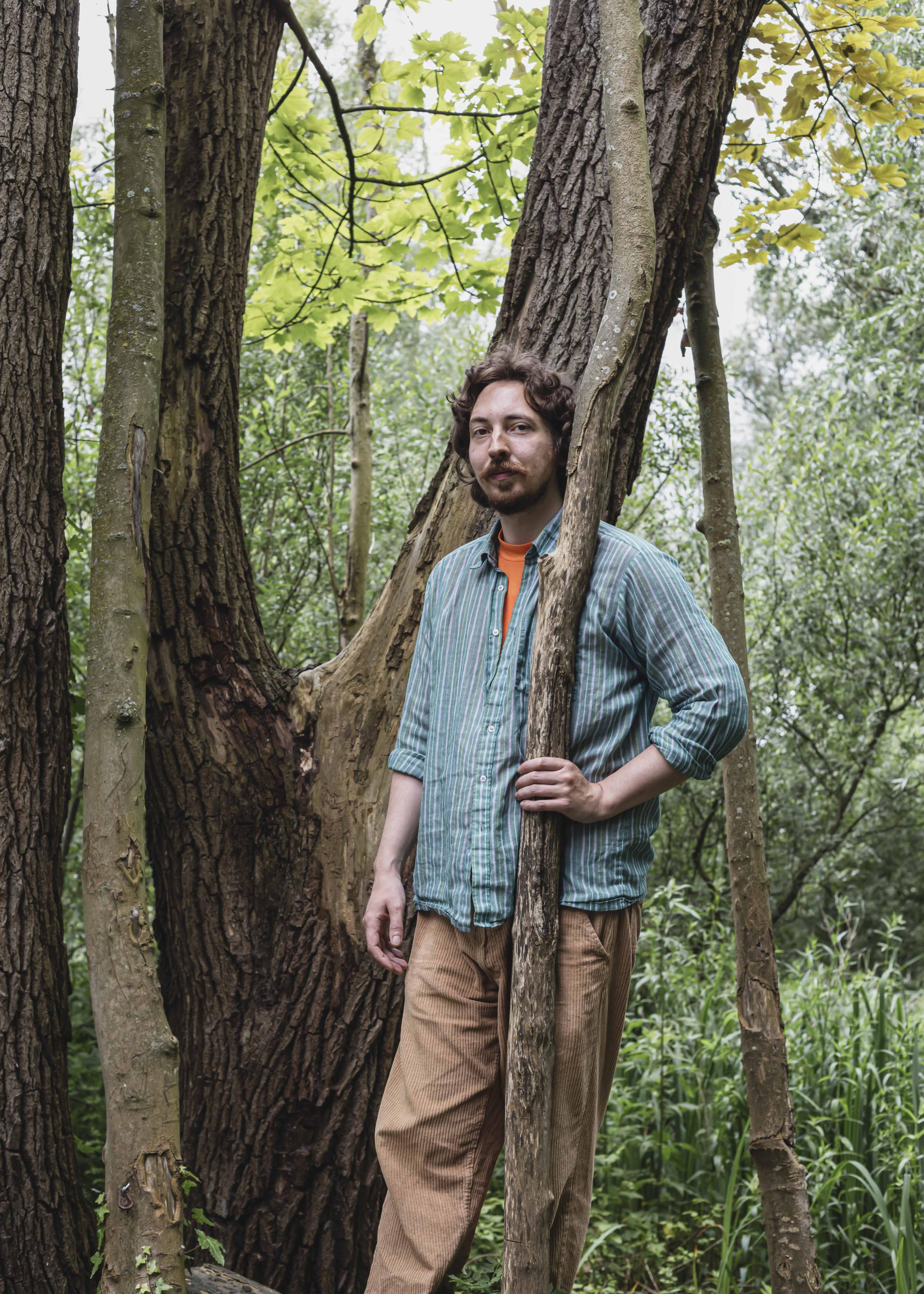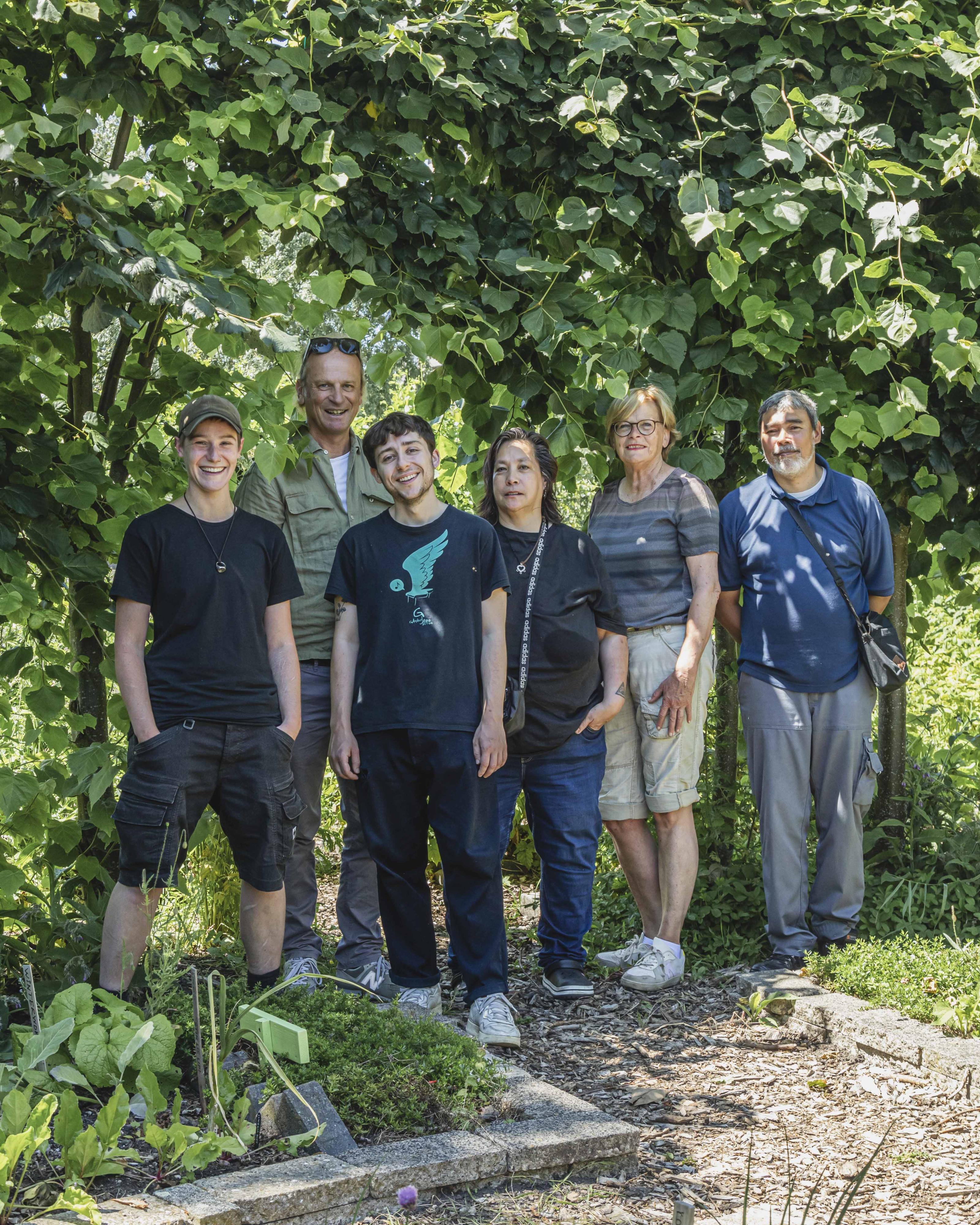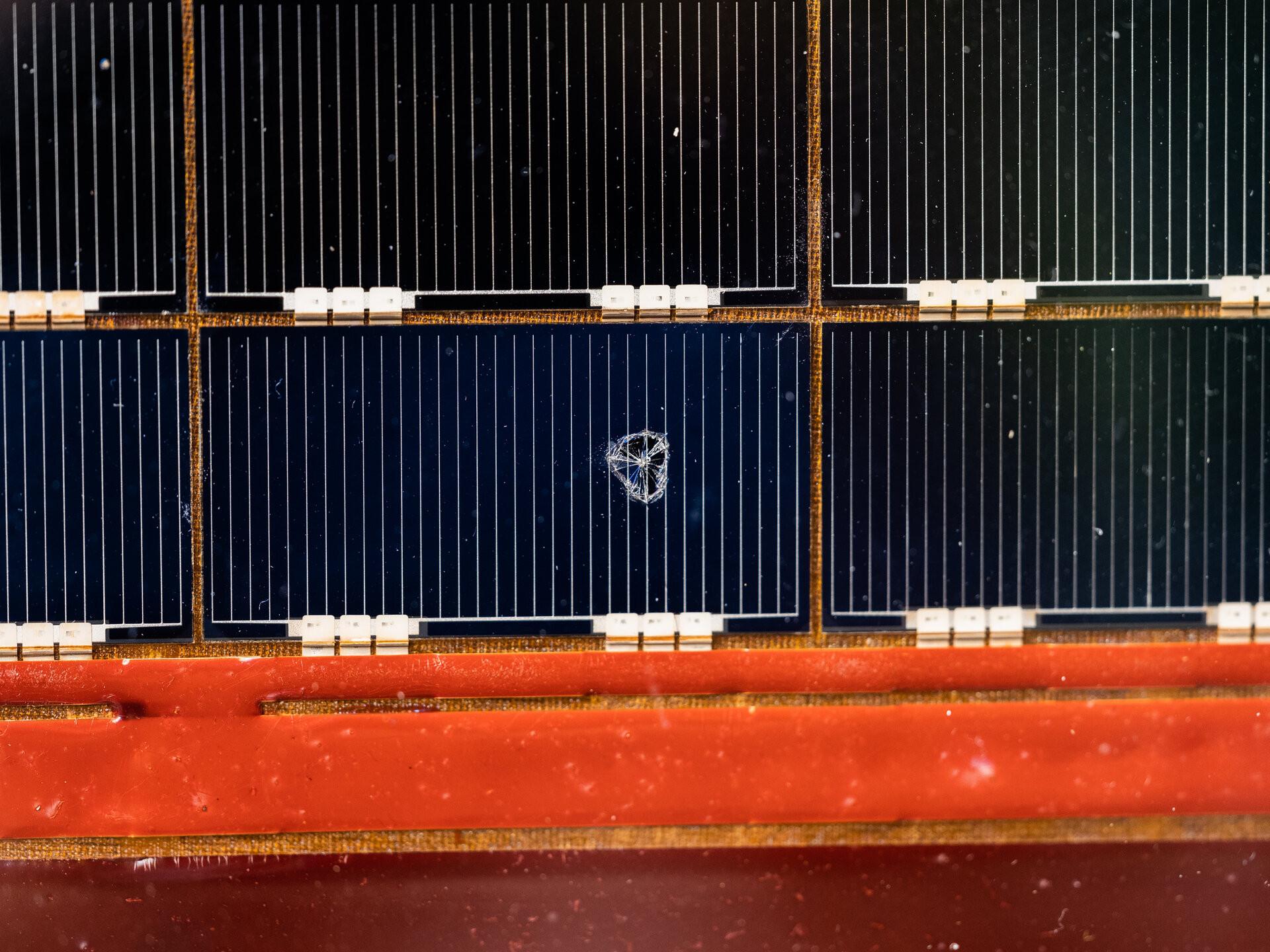On 14 July, feminist architect and researcher Karin Reisinger joined us from Vienna for a tour of the exhibition and a conversation following the screening of Jumana Manna’s film Foragers. Alina Paias and Catherine Koekoek had been working with Karin for the last months on her contribution to the exhibition: the Listening Station on practices of hope amid extractive violence. This was also the first time that Karin saw the installation, and it was touching to hear her talk about her history of working in this northernmost part of Sweden – closing off with her reading of Lis-Mari Gurák Hjortfors’ poem In the Spirit.
The Listening Station documents the work of Pernilla Fagerlönn, Lis Mari Gurák Hjortfors, Miriam Vikman, and Karina Jarrett in Malmberget, a town that is about to disappear in the face of a series of mining operations including an iron ore mine. Karin told us how the last people will move out this August. These four women, whose stories you can listen to in the exhibition, use embroidery, walking, organizing, and poetry to reclaim their surroundings as a place full of life, Sami culture, and history, and not just exploitation.
How to practice hope when it feels like no future is possible? Although most contexts are not as extreme as Malmberget, this is a question that all of us face in different ways. Foragers documents the impact of Israeli nature protection laws on foraging customs in Palestine, showing how oppressive legislation and economic constraints cut off Palestinians from their connection with the land (already before the genocide in Gaza that has now been ongoing for almost ten months). But it also shows the often-humorous resistance practices of Palestinian foraging, using a mix of fiction and documentary work.
Alongside Karin, we invited Golnar Abbasi to join us, and the audience, for a reflective Sunday afternoon conversation. Golnar is an artist/architect, researcher, publisher, and educator based in Rotterdam, and she was also one of the teachers of Catherine Koekoek when she studied in Delft. What tactics and tools can we use as designers to practice hope amid violence? Golnar described how the harmful consequences of our actions as architects – like how our use of steel impacts the community of Malmberget – are often obscured. Documenting these consequences, these histories of eviction, is a crucial step for designers before another future can be possible. And perhaps, Karin reflected finally, it’s good that we don’t have ready-at-hand tools to use in contexts like these: it invites us to invent the ones we need, as Audre Lorde already explained that the master’s tools will never dismantle the master’s house.
The first Hope Conversation took place on 14 July. The recording of the event can be watched here.
